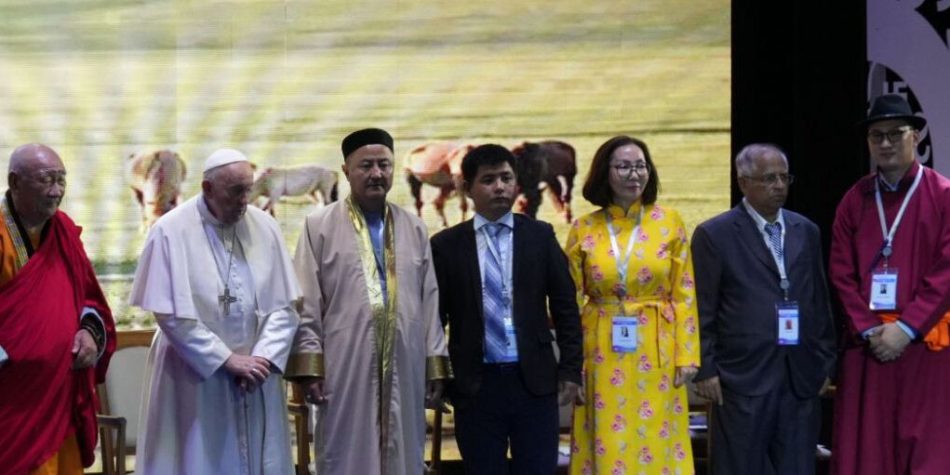From my early days as a convert to The Church of Jesus Christ of Latter-day Saints, I’ve been deeply moved by the Church’s recognition of the indispensable and unique role of women. Latter-day Saint women, both within the Church and in secular arenas such as businesses and charities, demonstrate our boundless potential.
In my most recent article for Public Square, I gave examples of this work in the arena of maternal health. A recent event in Mongolia presented another example of the expansive good Latter-day Saint women do and how the Church of Jesus Christ leads in an international context on women’s issues in culturally aware and sensitive ways.
The scriptures and teachings of the Church continually underscore the significance of women. Women serve in various capacities, from missionary work to teaching the gospel and caring for the needy. Every woman in the Church is entrusted with the responsibility to understand and champion her divine roles, whether as a mother, daughter, sister, or friend. Central to her message was the figure of Jesus Christ.
A Woman in Mongolia
On September 3, in Ulaanbaatar, Mongolia, Pope Francis hosted an interfaith gathering bringing together representatives from diverse religious backgrounds. From Mongolian Buddhists to Jews, Muslims, and adherents of the Shinto tradition, each shared their unique perspectives and teachings.
Sister Tuvshinjargal “Tuvshin” Gombo represented The Church of Jesus Christ of Latter-day Saints. As I reflect on her participation, I’m filled with a sense of pride and admiration. Tuvshin emphasized the universal kinship of humanity, stating, “We are brothers and sisters, all children of the same Eternal Father.” Central to her message was the figure of Jesus Christ, described as “the way, the truth, and the life,” whose teachings act as a beacon guiding the faithful. She urged all to “love one another, seek understanding and compassion, and strive for harmony amidst our diversity.” Drawing from Mongolian culture, she likened the shelter of the Mongolian ger, a traditional home, to the commitment of Latter-day Saints in Mongolia to follow Christ, seeing Him as the source of unity and peace. Her vision of a world “where love prevails, where families are strengthened, and where all God’s children find hope, acceptance, purpose, and peace” resonates deeply with the core teachings of the Church.
Among the many powerful messages Tuvshin delivered was her presence—the sole female representative at the event. In a gathering of this magnitude and importance, our Church was the only one to send a woman as its ambassador. This decision, while seemingly simple, speaks volumes. It underscores the Church’s recognition of the vital roles women play, not just within our congregations but in representing our faith on global platforms to speak about the power of Jesus Christ.
Women of Mongolia
Mongolia has long been a nation that is progressive in the role of women. During the era of the Mongol Empire, women shouldered responsibilities alongside men, from tending to animals and setting up camps to childrearing and food production. Their rights, surprisingly progressive for the time, allowed them to own property, participate in religious ceremonies, and even ascend to the roles of shamans. The voices of women, especially those in elite ranks, were heard and valued. Some even reigned as regents. Their expertise in managing camps was pivotal in the logistics of Mongol warfare.
Historically, Mongolian women enjoyed a status often higher than their counterparts in other Asian societies. When Tuvshin drew parallels between the safety of Christ and the traditional Mongolian ger, she called on this long history of deep-rooted respect for women in Mongolian culture and their significance in the Church.
In this context, the Church’s decision to send a woman representative to Mongolia is profound. It not only aligns with Mongolia’s historical respect for women but also underscores the Church’s commitment to elevating the voices of women on global platforms in ways that are culturally appropriate in a worldwide context.
Elevating Women in Interfaith Dialogues
Tuvshin’s vision of a world ‘where love prevails, where families are strengthened, and where all God’s children find hope, acceptance, purpose, and peace’ is a testament to the Church’s commitment to elevating women. Her words not only represent our Church’s teachings but also echo universal values that transcend religious boundaries.
The Church of Jesus Christ made a statement by sending Tuvshin as the Church’s representative. This decision, while perhaps subtle to some, speaks volumes about the Church’s egalitarian stance on women’s roles. It’s a visual testament to our belief in the equal capacities of men and women. They have the knowledge, the conviction, and the spirit to represent our teachings on any platform, be it local or international.
In a world where the roles of women in religious settings are often underrepresented, the Church’s decision is a beacon of hope. It reaffirms our commitment to elevating women, recognizing their invaluable contributions, and ensuring that their voices are not just heard but celebrated.
A Global Faith
The Church of Jesus Christ of Latter-day Saints has always recognized the unparalleled influence of women in forwarding the gospel kingdom. When women unite in purpose, their collective influence for good knows no bounds.
This legacy continues as more sister missionaries assume leadership roles, actively shaping the future of our faith. The Church continually encourages its members to recognize the power and influence of women, not just in scriptures and history, but in daily life—families, communities, and the world at large. Meaningful progress often requires understanding and patience.
Tuvshin’s emphasis on ‘love, understanding, compassion, and the teachings of Jesus Christ’ during the interfaith event in Mongolia serves as a reminder of the Church’s global mission. Her words resonate with the Church’s efforts in championing women’s rights and roles, demonstrating that meaningful progress often requires understanding and patience rather than imposing a singular Western perspective.
In sum, while the Church, like any global institution, faces challenges and criticisms, its commitment to elevating and empowering women is unwavering—a testament to its foundational teachings and the ever-evolving role of women within its fold. Tuvshin’s call to “emulate Christ’s example, an exemplar of love, forgiveness, and selflessness” encapsulates the Church’s vision for all its members, regardless of gender.

















